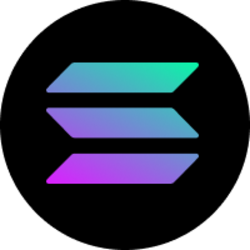Bitcoin cash has lately got a lot of attention among the crypto community and many have seen swapping their Bitcoin (BTC) for Bitcoin Cash (BCH). In this article, we will see what is bitcoin cash and how it is different from its parent bitcoin.
What is Bitcoin Cash?
Similar to its parent, bitcoin cash is also a peer-to-peer electronic cash system that was forked from bitcoin to become better with fast payments, micro fees, privacy, and high transaction capacity (big blocks).
Bitcoin cash is also a permissionless, decentralized cryptocurrency that doesn’t require any third parties and the central bank for trust creation. Unlike traditional fiat money, Bitcoin Cash does not depend on monetary middlemen such as banks and payment processors. Transactions cannot be censored by governments or other centralized corporations. Similarly, funds cannot be seized or frozen — because financial third parties have no control over the Bitcoin Cash network.
Bitcoin cash has a limited total supply of 21 million coins which creates gold-like scarcity. Bitcoin Cash is provably scarce and, like physical cash, can be easily spent. Transactions are fast with transaction fees typically less than a tenth of a cent. Anybody can accept Bitcoin Cash payments with a smartphone or computer.
Bitcoin Cash has various use cases. In addition to peer-to-peer payments between individuals, Bitcoin Cash can be used to pay participating merchants for goods and services in-store and online. Very low fees enable new microtransaction economies, such as tipping content creators and rewarding app users a few cents. Bitcoin Cash also reduces the fees and settlement times for remittances and cross-border trade. Other use cases include tokens, simplified smart contracts, and private payments with tools such as CashShuffle and CashFusion.
Bitcoin Cash is currently the 9th most popular crypto, with a market cap of over US$26 billion and trading at US$1408.64 at the time of writing. Like BTC, BCH has shown massive growth in the past year, rising over 480% since May 2020.
How Bitcoin Cash is different from Bitcoin?
In 2017, the Bitcoin project and its community split in two over concerns about Bitcoin’s scalability. The result was a hard fork that created Bitcoin Cash, a new cryptocurrency considered by supporters to be the legitimate continuation of the Bitcoin project as peer-to-peer electronic cash. All Bitcoin holders at the time of the fork (block 478,558) automatically became owners of Bitcoin Cash. Bitcoin, which was invented by the pseudonymous Satoshi Nakomoto remains a separate cryptocurrency.
Unlike Bitcoin (BTC), Bitcoin Cash (BCH) aims to scale so it can meet the demands of a global payment system. At the time of the split, the Bitcoin Cash block size was increased from 1MB to 8MB (can be extended to 32MB). An increased block size means Bitcoin Cash can now handle significantly more transactions per second (TPS) while keeping fees extremely low, solving the issues of payment delays and high fees experienced by some users on the Bitcoin (BTC) network.
BCH uses a different difficulty adjustment algorithm (DAA). For BTC the network difficulty is adjusted every 2016 block (around 2 weeks). BCH difficulty is adjusted for each block (roughly every 10 minutes), calculated via a moving window of the previous 144 blocks. Simply put, the difficulty is a measure of the computing power needed to mine a block. Difficulty adjustments help guarantee steady block production and secure the network.
Overall Bitcoin Cash is cheaper and faster than Bitcoin, enabling more people to execute transactions on the blockchain at the same time. BCH supports 116 transactions per second, compared to the Bitcoin network’s capacity of 10 transactions per second. The average BCH transaction costs around US$0.03, while BTC transactions cost around US$20. BTC fees reached as high as US$60 in April.
The only downside with BCH is that since it is fairly new in the market, it has fewer trading pairs and low liquidity. The trading volume is also very less as compared to its big brother.
How to mine Bitcoin Cash?
Mining Bitcoin cash is similar to mining bitcoin. Reason? because it is also based upon PoW (Proof-of-Work) consensus protocol. You can mine bitcoin cash using dedicated AISC hardware by purchasing it or renting it on the cloud or you can mine BCH by joining a mining pool. The second option is better because the mining pool has more hash power and likely to win. In the mining pool, the reward gets distributed in the same proportion of hash power to all the miners.
How do you buy Bitcoin Cash?
You can also buy and trade Bitcoin cash on crypto exchanges. All major crypto exchanges like Coinbase, Binance, Kraken, etc support Bitcoin cash trading. Be sure to do your own research before picking an exchange to buy Bitcoin Cash.













[…] law proposal supporter” — specifically referencing HB 4474 — and seemed to encourage Bitcoin (BTC) mining firms to set up shop in the […]